EDUCATION
Archives
Look out for free giveaways inside the articles!
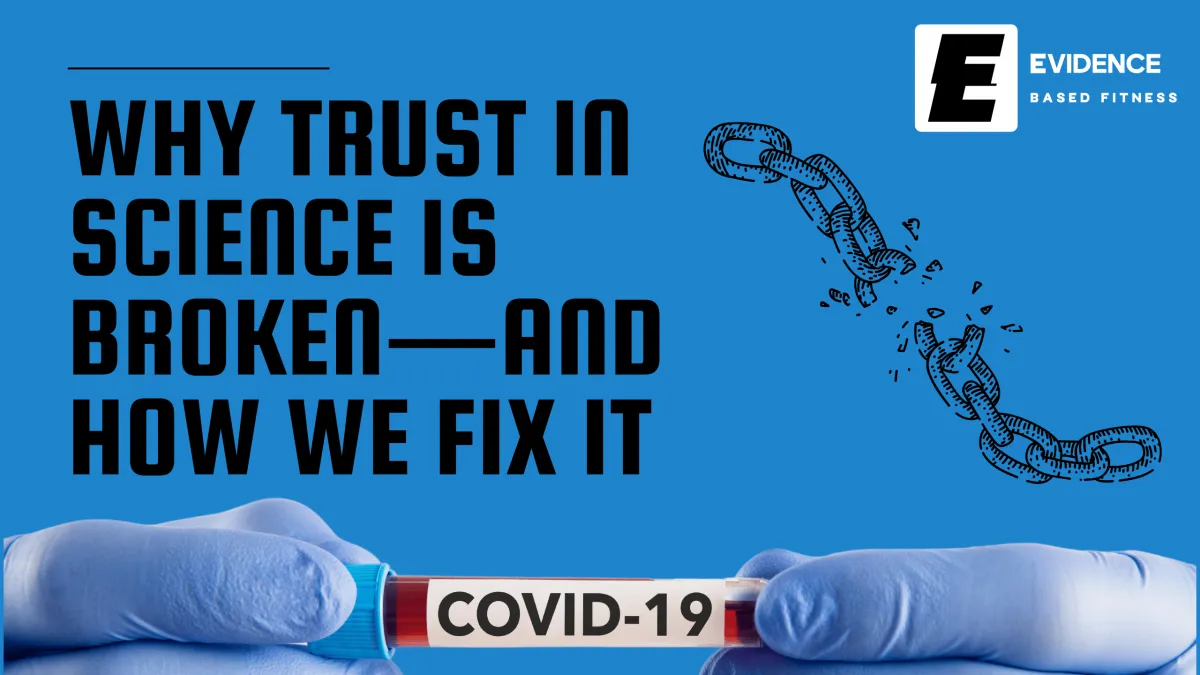
Why Trust in Science is Broken—And How We Fix It
Frustrated but Still Evidence-Based
It’s 2024, and I understand why so many people are skeptical of “trusting the science.” For many, it started with COVID-19.
Like countless others, I felt let down by how the vaccine rollout and mandates were handled, especially for young, healthy individuals.
Looking back, here’s why that frustration exists:
1️⃣ COVID-19 Vaccines Did Not Stop Transmission
Despite early claims, vaccines never blocked the spread of the virus. For variants like Delta and Omicron, vaccinated individuals were just as capable of transmitting COVID-19 as those who were unvaccinated.
Evidence: Studies like Riemersma et al. (2021) showed that vaccinated individuals with breakthrough Delta infections had viral loads comparable to unvaccinated individuals, indicating similar transmission potential.
Why It Matters: This made blanket mandates for low-risk groups unnecessary and, in some cases, harmful.
2️⃣ Young, Healthy Individuals Faced Minimal Personal Benefit
The risk of severe illness for young, healthy people, especially young males was already incredibly low. Yet, this group was still mandated to vaccinate, even when the benefits were negligible and there were known risks of real side effects like myocarditis.
As someone fit and healthy, my own experience highlighted just how dismissive the system could be. I was called by the Australian Department of Health after a blood test and told I had antibodies for COVID-19. Naturally, I asked, “Does that mean I have immunity?” Before I could even finish, I was quickly cut off: “You still need to get vaccinated.”
When I pressed for an explanation, they repeated the claim that vaccination would stop others from getting COVID-19, a claim we now know wasn’t true. Experiences like this made it feel like the government cared more about enforcing compliance than respecting individual autonomy or applying updated evidence.
Evidence: Myocarditis risks in young males post-vaccination were documented in studies like Husby et al. (2021), showing higher incidence rates, particularly after the second dose.
3️⃣ Natural Immunity Was Ignored
Studies showed that prior infection provided robust protection, often stronger than vaccination. Yet, this was dismissed, and people who had recovered from COVID-19 were still forced to vaccinate. Why wasn’t natural immunity part of the conversation?
Evidence: Gazit et al. (2021) demonstrated that natural immunity was associated with a 27-fold reduction in symptomatic reinfection compared to vaccine-induced immunity in matched populations.
4️⃣ Public Health Messaging Failed to Adapt
Public health officials claimed to act on the best available evidence, but credible dissenting experts were silenced, and alternative viewpoints were suppressed. Through media and social platforms, authorities controlled the narrative, labelling dissent as "misinformation." Instead of fostering open debate, a cornerstone of scientific progress, they doubled down on outdated policies.
Examples of Silencing:
Great Barrington Declaration: This statement, authored by leading epidemiologists from Harvard, Stanford, and Oxford, advocated for focused protection of high-risk populations while allowing low-risk groups to live more freely. It was dismissed as "fringe" and dangerous, with public health officials like Dr. Anthony Fauci and Dr. Francis Collins calling for a "takedown" of its authors.
Dr. Robert Malone and mRNA Concerns: Dr. Malone, a scientist involved in early mRNA research, raised concerns about vaccine risks and mandates. His social media accounts were suspended, and his views were often dismissed despite his credentials.
Coordination with Social Media Platforms:
Internal communications, revealed in the “Twitter Files,” showed that government agencies like the CDC and White House worked directly with platforms like Twitter to monitor and suppress posts questioning vaccine efficacy or mandates, even when these posts came from credentialed experts or cited valid data.
Resulting Distrust:
These actions made it appear that public health authorities were more interested in controlling the narrative than engaging with legitimate scientific debate. This lack of transparency and open discussion only fuelled public skepticism and eroded trust.
What Makes This Even Harder to Swallow?
No one has apologised.
No one has been held accountable.
And that’s simply wrong.
For many of us, it feels like the government prioritised enforcing compliance over respecting individual autonomy or adapting policies as new evidence emerged. This lack of accountability and acknowledgment has only deepened public distrust in the systems meant to protect us.
But Here’s Where I Stand in 2024
Despite all this.
I still believe in evidence-based practice.
Why? Because science itself isn’t the problem. It’s how it was applied and communicated during the pandemic.
Evidence-based practice means questioning assumptions and updating policies as new data emerge.
It means respecting individual risk profiles instead of enforcing one-size-fits-all mandates.
It means allowing debate, not silencing dissent, so the best ideas can prevail.
Moving Forward
I understand why trust in science has been shaken. But giving up on evidence-based practice isn’t the solution. Instead, we need public health systems that are transparent, humble, and truly respect the people they serve.
Science done right saves lives. Science done wrong destroys trust.
We can and must do better.
IT'S FINALLY HERE!
Unlock Your Epic Self - Join these EBFitness legends!
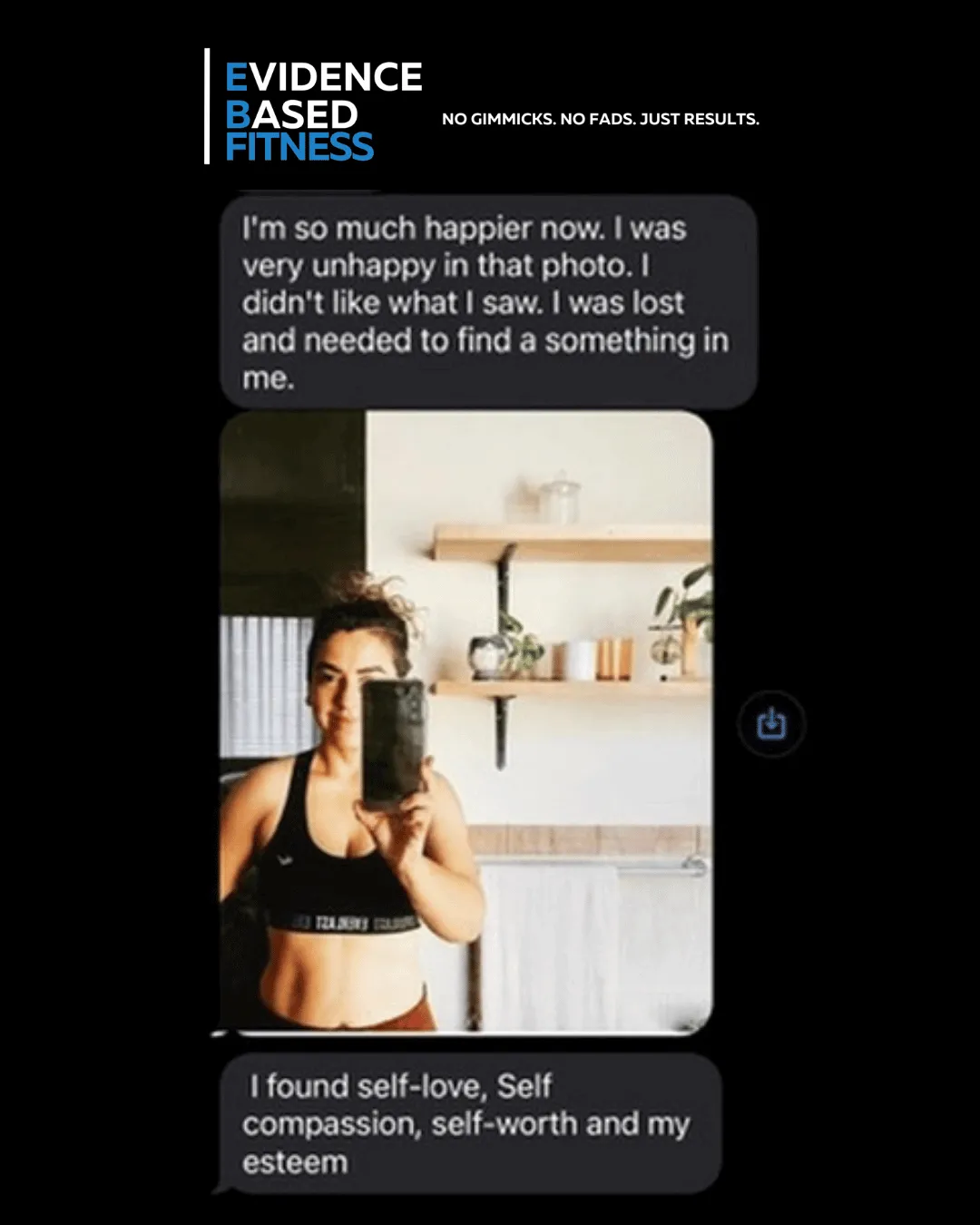

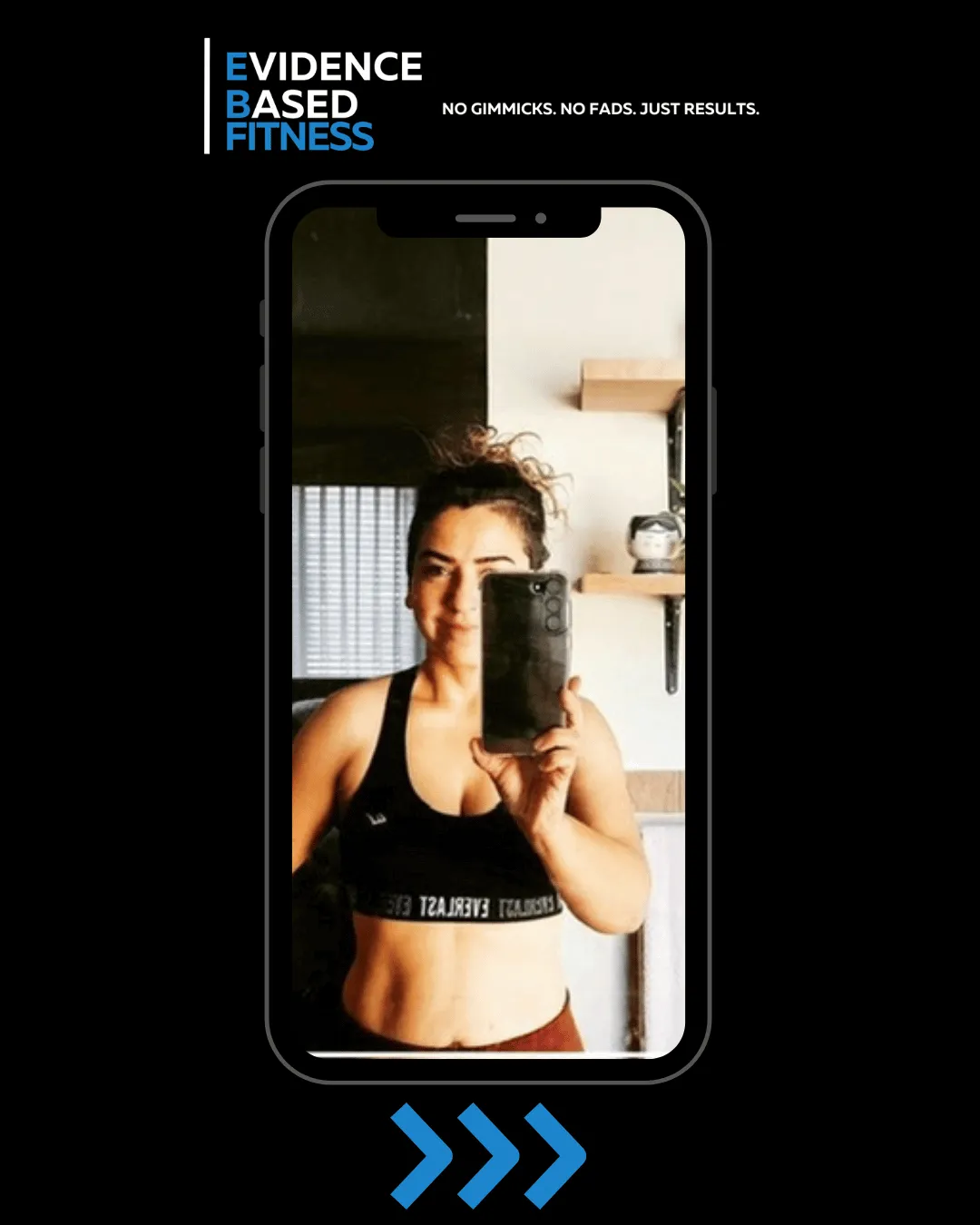
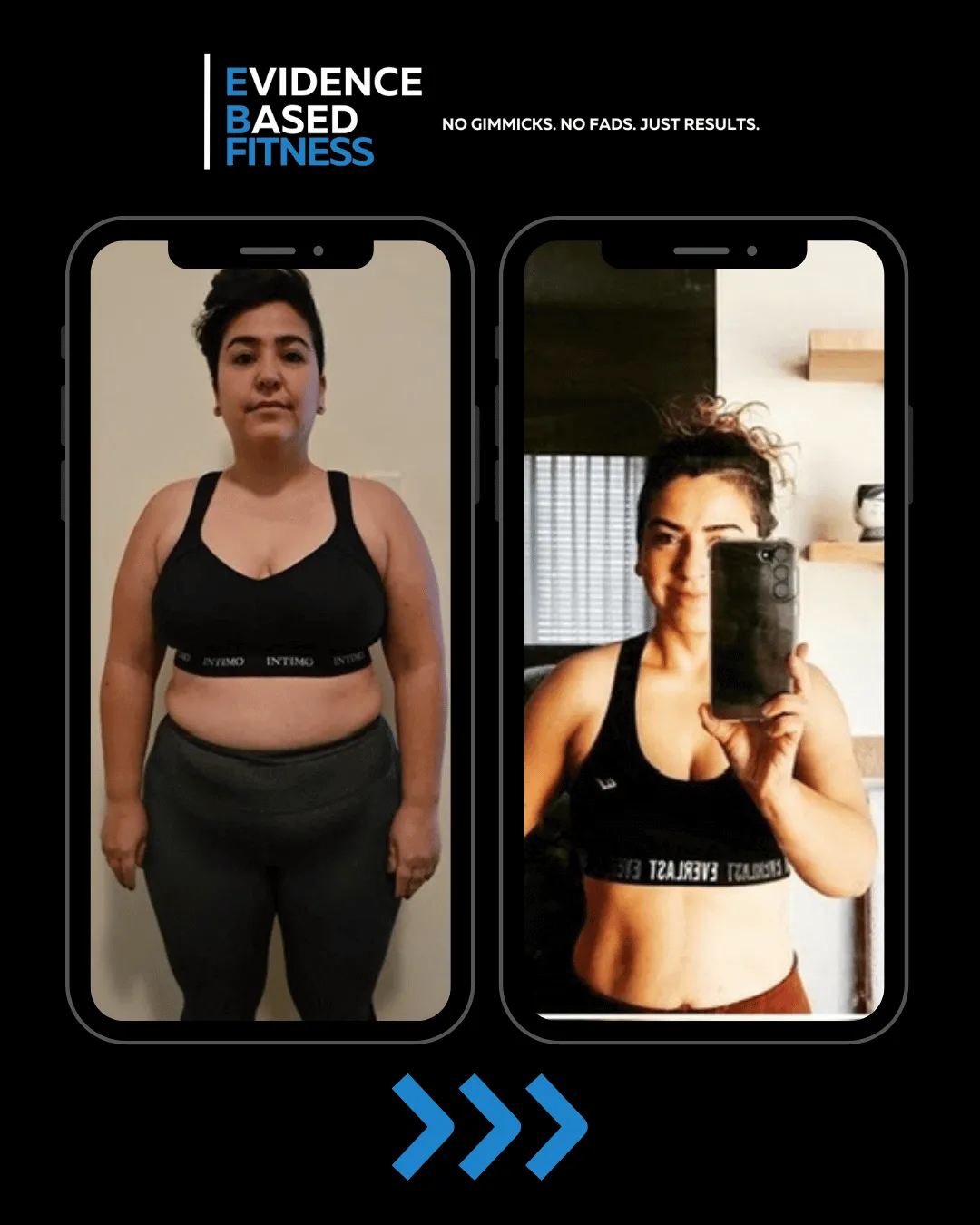
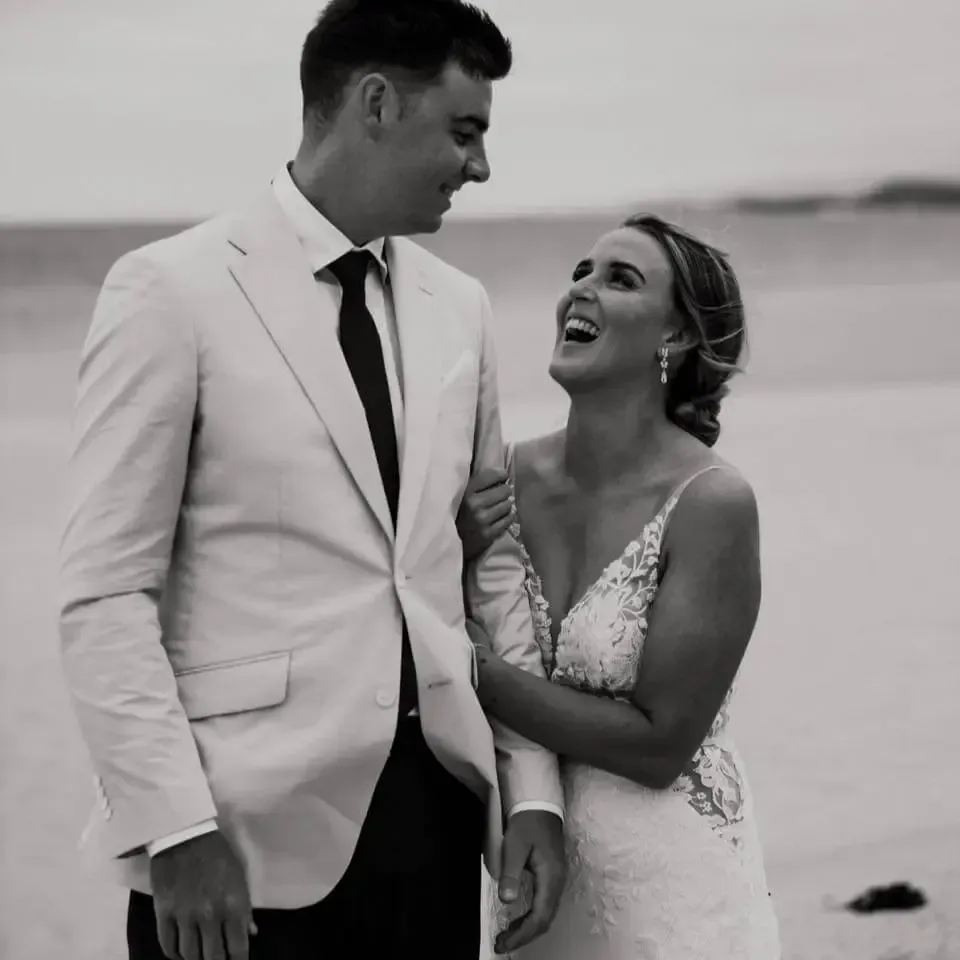
"I'm a lot happier and more confident looking in the mirror. I noticed especially through looking at all the progress photos which I'm still taking now that I'm off the program, that my stomach is flat and I'm starting to see some baby abs coming through! I definitely recommend the program to my friends if they're trying to get back on track. Elliot's knowledge, passion and commitment for what he does is incredible!"
Kim


"Elliot is a highly professional and passionate coach, with the skills and resources to back him! From the learning content, apps, check in’s, personalised goal setting, nutrition and workout plans he really has covered it all. Elliot was able to make goals that seemed impossible in the past, finally achievable."
Clare


I made a lot of progress in understanding the types of exercises I should be doing as well as the macro targets I should aim for every day. I lost 5cm off my waist in 3 weeks which was much more than I expected!!"
Steph

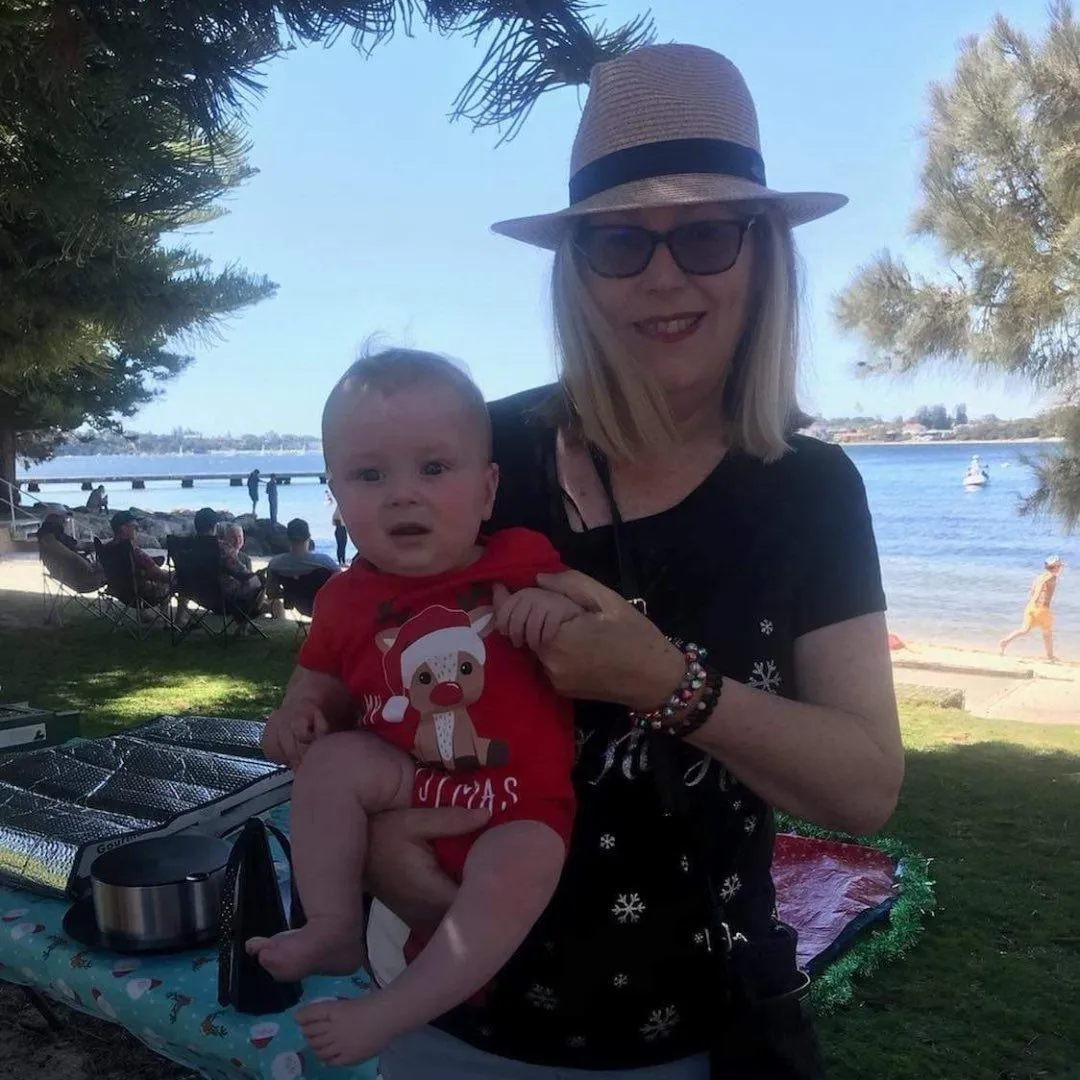
Initially, I just wanted to lose weight, that was the biggest thing for me. But when speaking with Elliot I realised I wanted to also to change my mentality and become excited again to exercise.
Deb

“I was motivated to start working with Elliot becasue I wanted to lose weight, feel more comfortable in my own skin and get a better understanding on how to eat around PCOS. I lost 6kg working with Elliot!
Nele

"Biggest change for me is my confidence. Worth every minute. Would highly recommend this to anyone who does want to make a change and needs a helping hand to get there."
Josh

"I'm down 13.2kgs! The biggest change for me, mindset. Elliot really helped change the way I think about progress and how to look at the changes I have achieved."
Jakob

"Elliot was amazing to work with and was always extremely encouraging and supportive of not only my fitness journey but he also focused on my overall mindset which was really great! He was super attentive and checked in very regularly which helped me to stay on track. I would highly recommend the program as a great way to kick start your fitness and to learn how you should be taking care of your body and your mind!"
Tiah

"A key takeaway for me was that the number on the scale isn't all that matters, and as long as you overall stick to your program some cheat days are fine :)
Brodie

I always had lower back issues. So, the warm-ups in a way that targeted specific areas and muscles have helped that massively! No back pain has been a big motivator for me to keep progressing."
Ryan

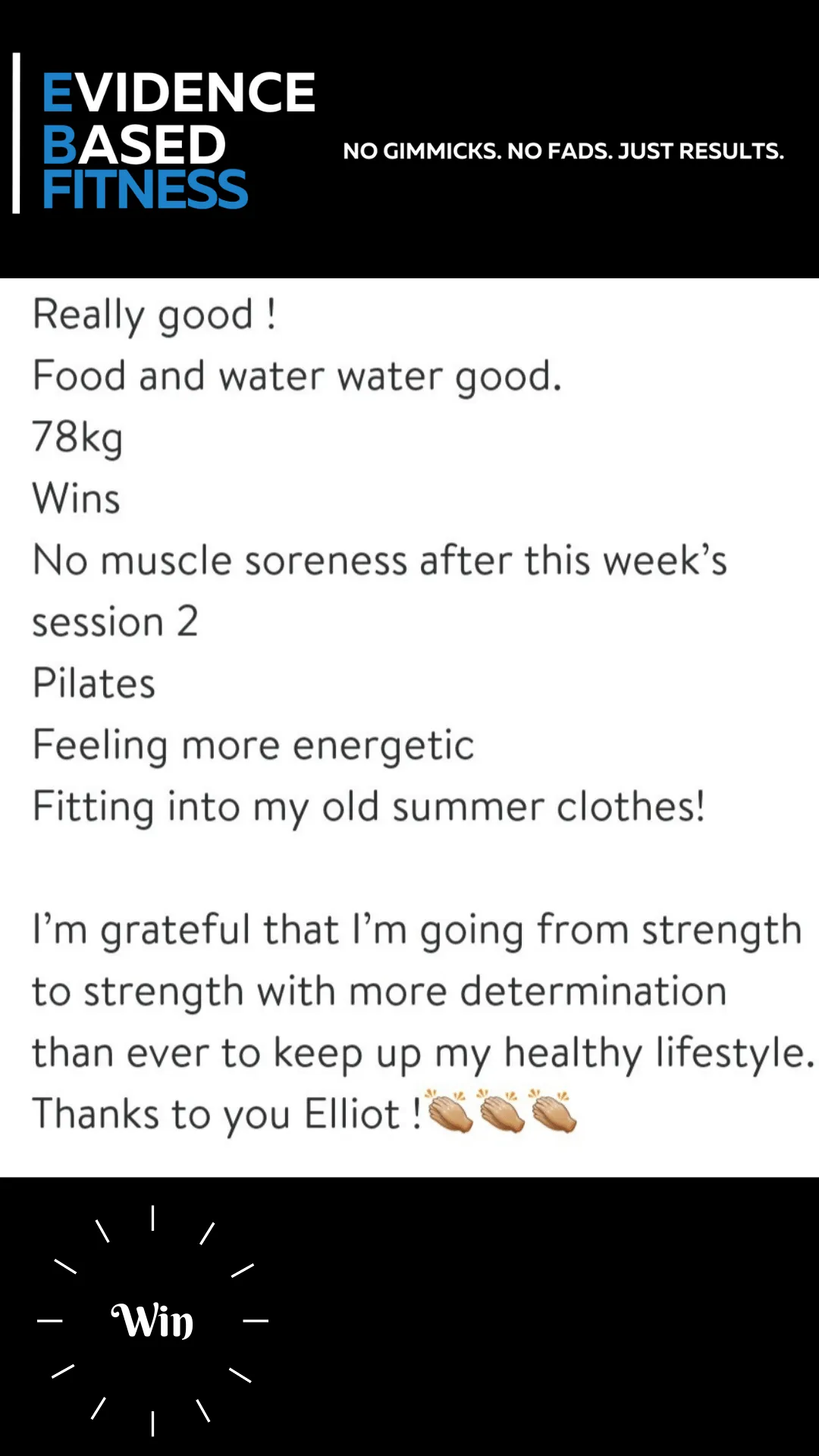
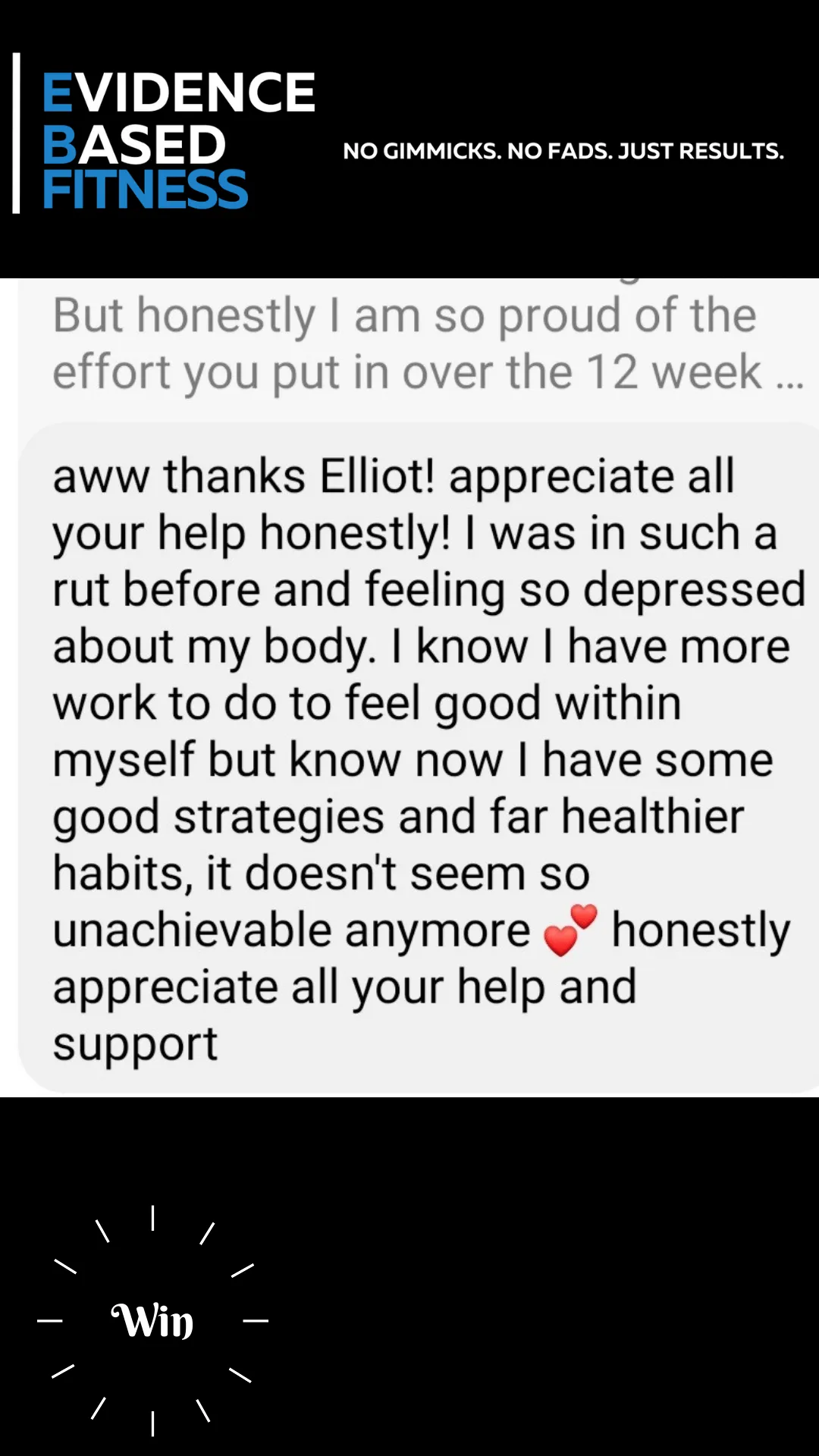
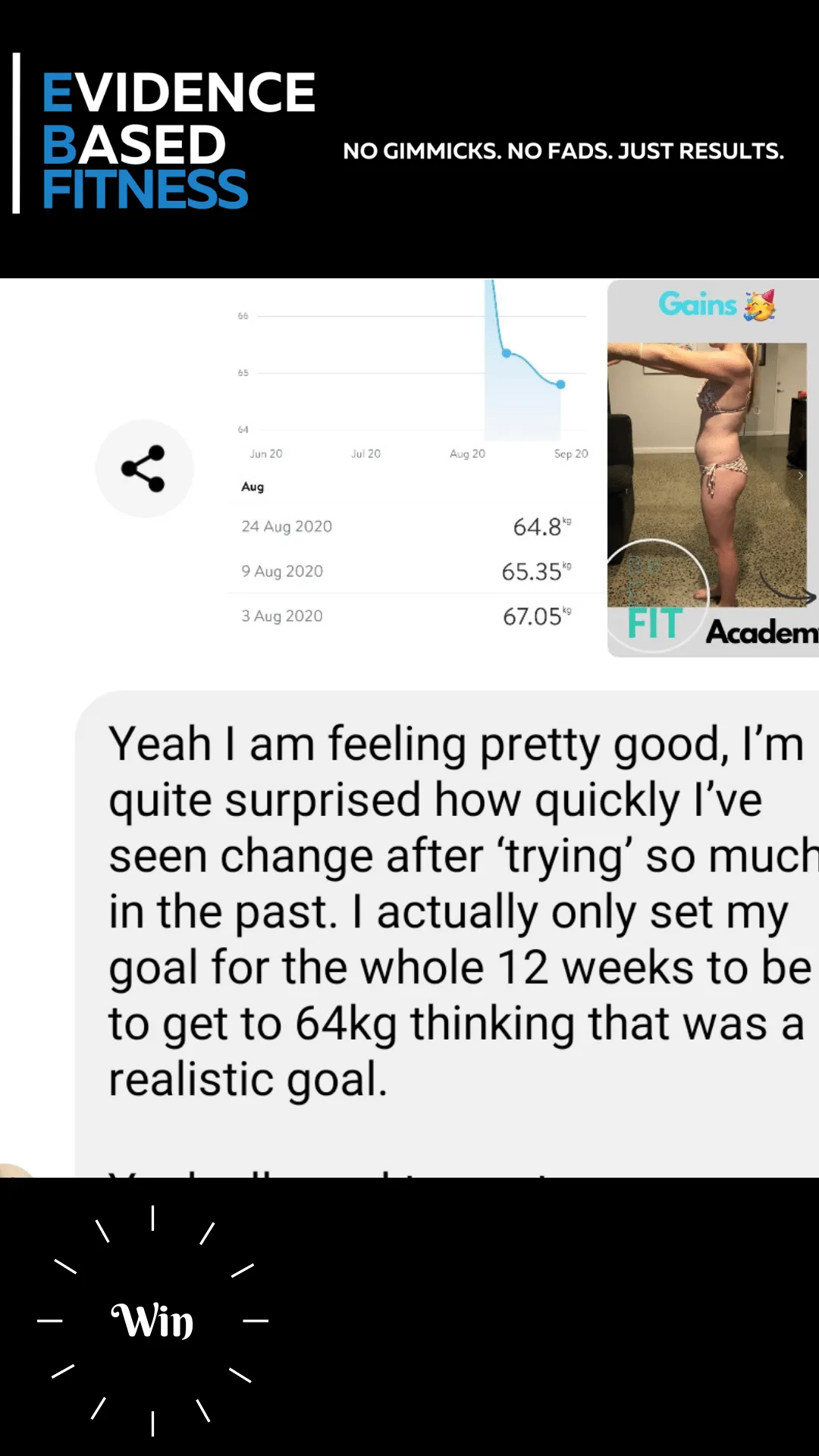
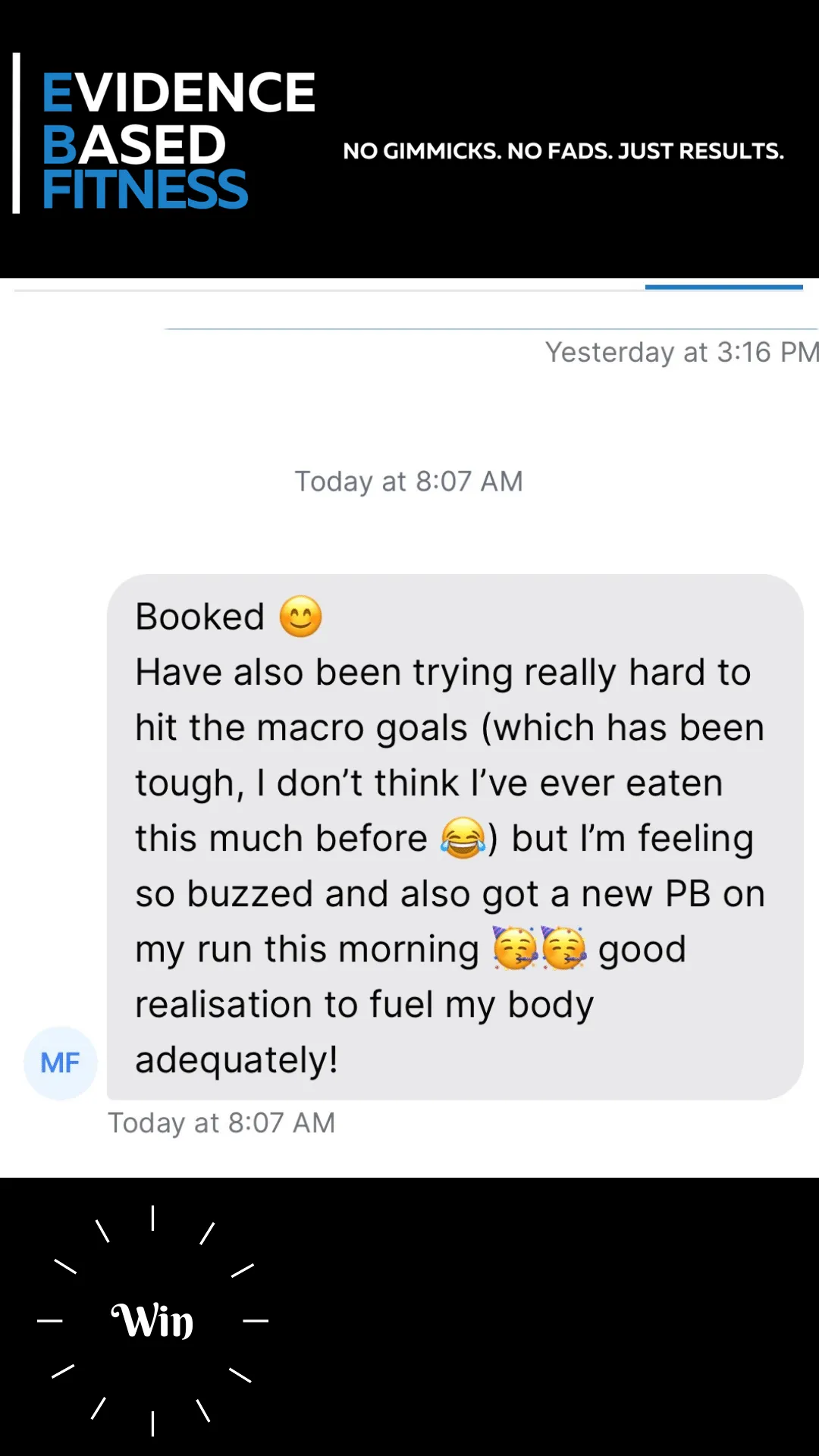
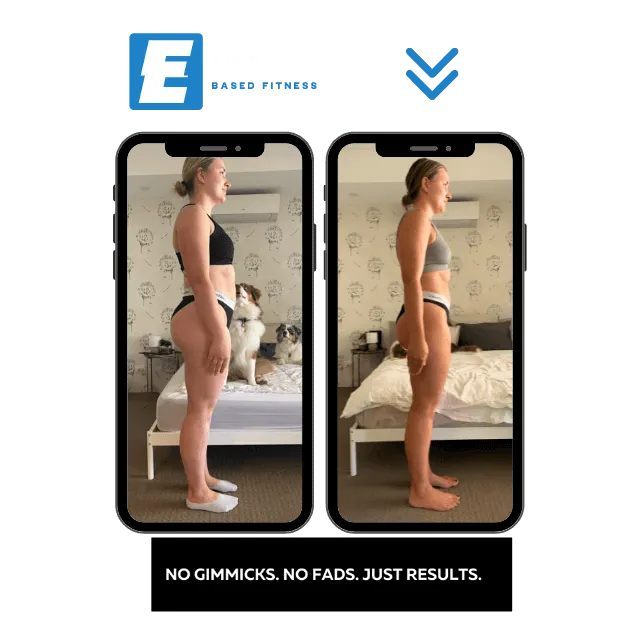
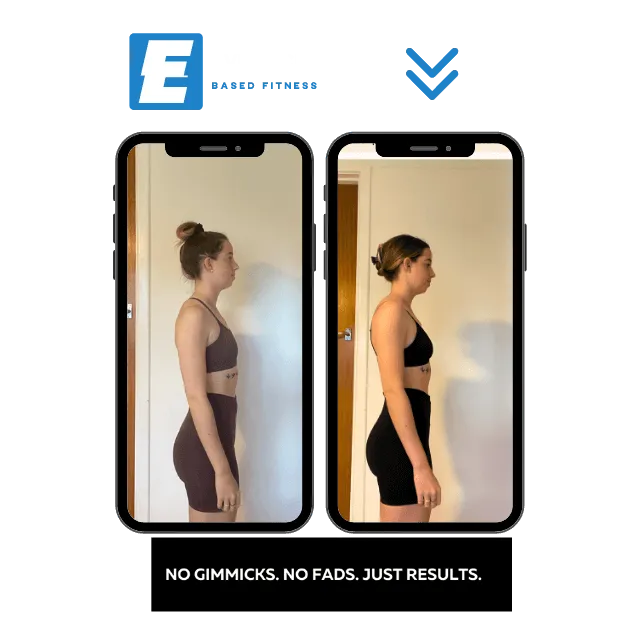
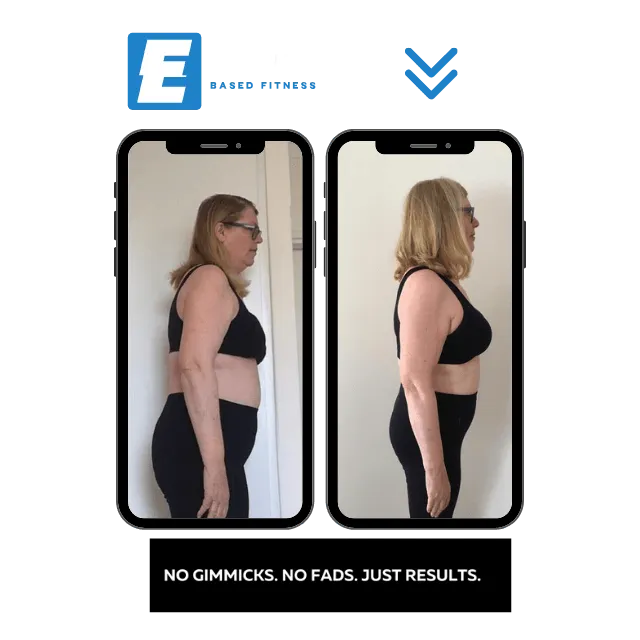
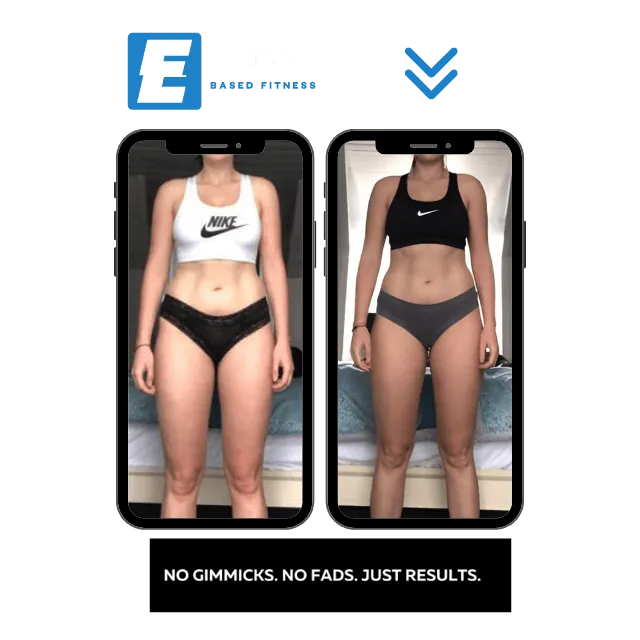
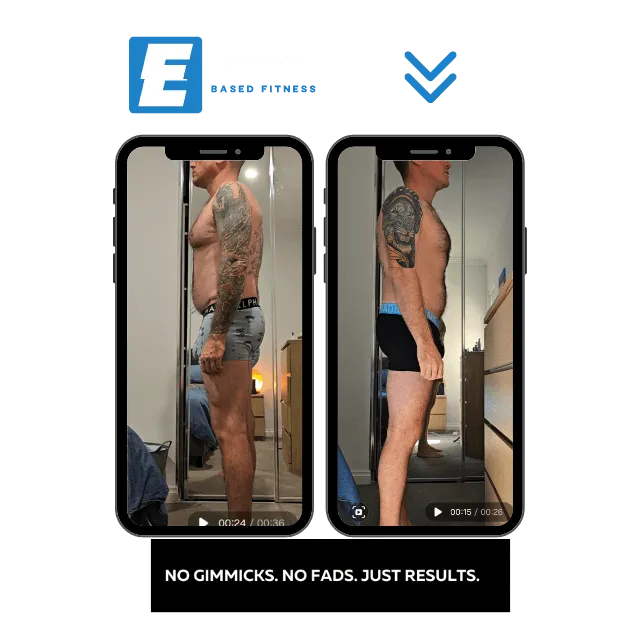


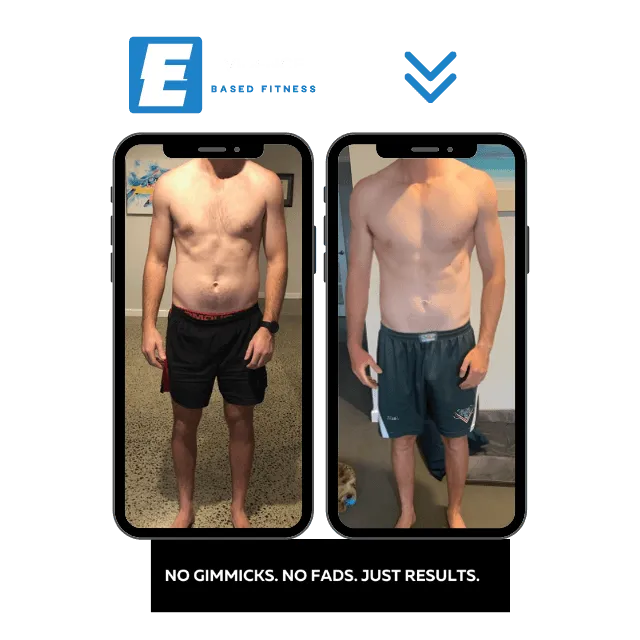
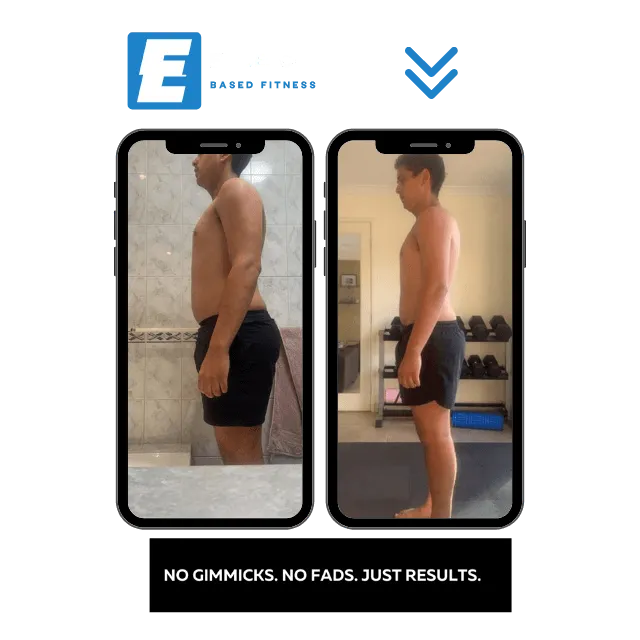
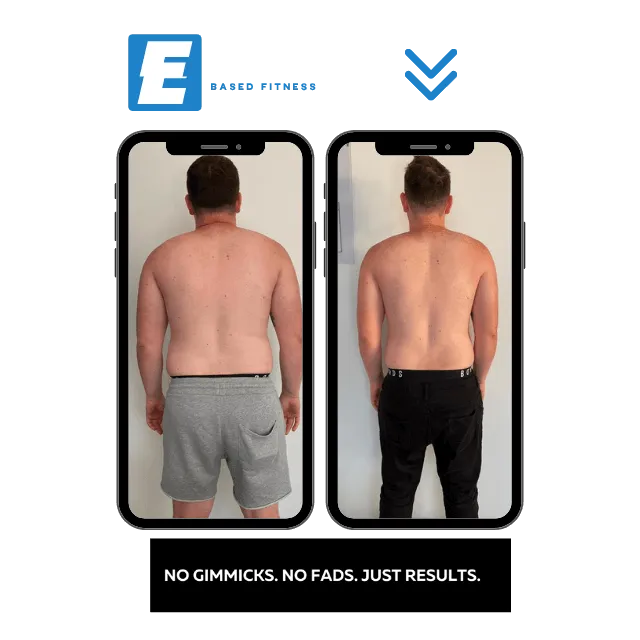
Call 0406502694
Email: elliotharris@ebfitness.com.au
Site: www.ebfitness.com.au
